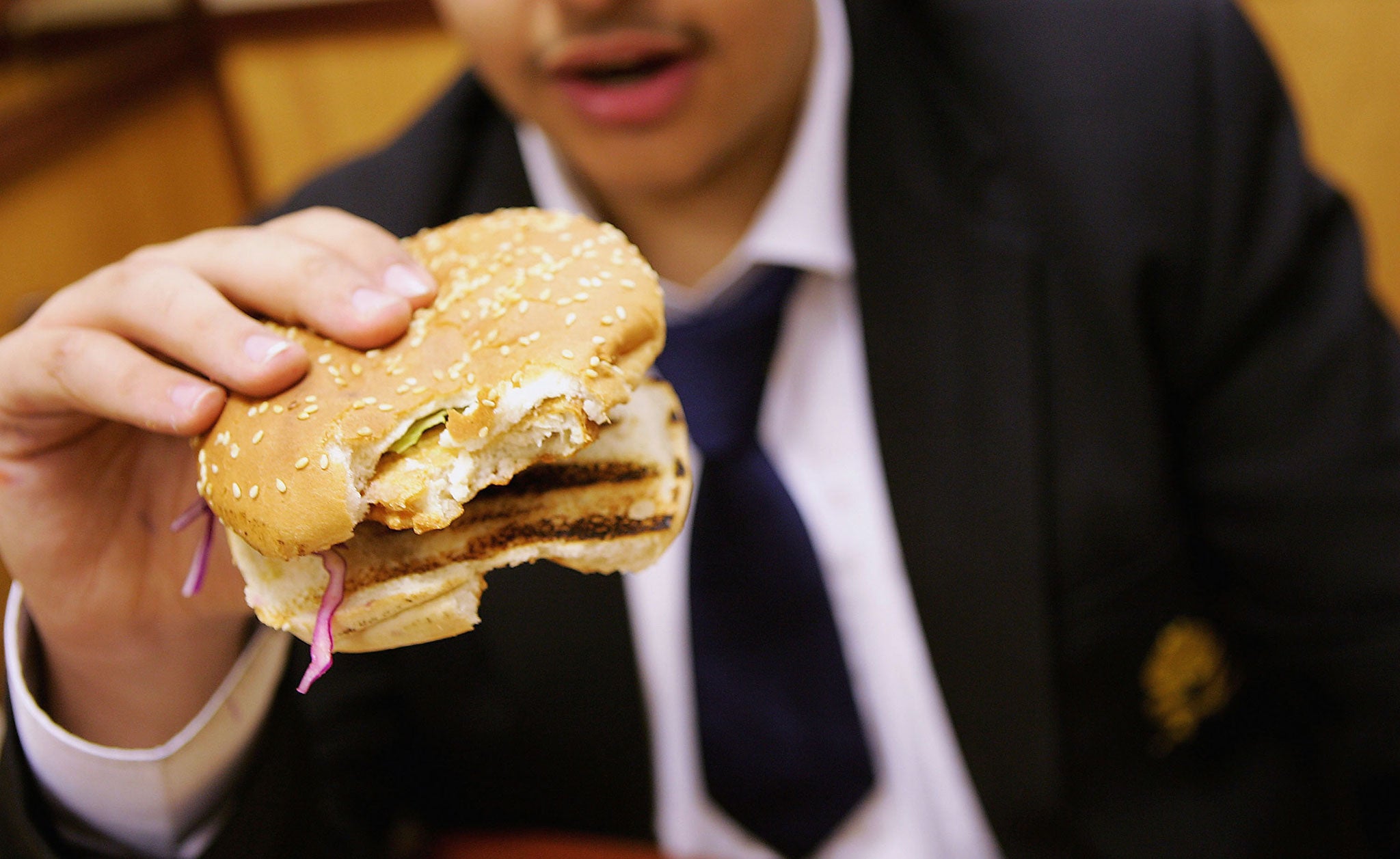Out of proportion? We're surprised by fat rich kids, yet expect it of the poor
One study claiming middle-class children are more obese than working-class peers has upset expectations. But it's those expectations that need a close, hard look

Your support helps us to tell the story
From reproductive rights to climate change to Big Tech, The Independent is on the ground when the story is developing. Whether it's investigating the financials of Elon Musk's pro-Trump PAC or producing our latest documentary, 'The A Word', which shines a light on the American women fighting for reproductive rights, we know how important it is to parse out the facts from the messaging.
At such a critical moment in US history, we need reporters on the ground. Your donation allows us to keep sending journalists to speak to both sides of the story.
The Independent is trusted by Americans across the entire political spectrum. And unlike many other quality news outlets, we choose not to lock Americans out of our reporting and analysis with paywalls. We believe quality journalism should be available to everyone, paid for by those who can afford it.
Your support makes all the difference.To a visitor from the 16th century, it wouldn’t be surprising at all. Poorer parents have thinner children. In the 1500s, that would have been self-evident; there were no Turkey Twizzlers then, and no Jamie Olivers to tell everyone about them. Adult or child, it was pretty hard to get fat without some serious money to spend on your vittles. Henry VIII, after all, did not live on a council estate.
These days, though, we find it shocking. And so a study finding that middle-class children in Leeds were fatter than the city’s working-class children has been, accordingly, reported in tones of anxious confusion. “Middle-class children,” Mail Online reported, with a telling application of block capitals, “are MORE likely to be obese.”
As ever with these things, it isn’t quite so simple as that. There’s plenty of evidence suggesting that obesity is most prevalent amongst the poorest; one study, in one city, doesn’t turn that on its head. Turkey Twizzlers remain bad news. Henry VIII, were he around today, would still look more like he belonged in Shameless than Made in Chelsea.
What the study does do, though, is highlight how unfairly we talk about this. You might blame Anna Soubry, the Tory minister who recently said that fat people “are normally poor”, except that she’s just piggybacking on a view that’s already received wisdom. The standard analysis runs, with superficial compassion, as follows: poor children are getting fat because we aren’t educating them well enough to make healthy choices, or feeding them well enough at school. The analysis has the following subtext: fatness is a problem overwhelmingly found among poor children, and that’s because they’re ignorant, and we had better give these kids a decent meal at school and teach them to identify a kumquat, because god knows in the evenings their bovine parents are just going to keep loading them up with crisps.
A couple of years of studies indicating that actually it’s the better-off who are larding up their progeny, and the conversation will certainly change in one significant way: instead of ignorant parents, the problem will be viewed as one of a sick society. And yet already, even disregarding this study, the gap between rich and poor is far smaller than you might expect, with about four in ten of the poorest children overweight, compared to about three in ten of the richest. We just don’t notice the posh ones.
If you’re unconvinced that there’s something insidious going on here, think of alcohol. Think of how those who vomit in the street after a WKD are viewed as a capital-P Problem in a way that those who hit their wives after a couple of bottles of Merlot are not – even though all the actual evidence suggests that professionals drink far more than manual workers. And when you have considered this, consider the following question: if you were that medieval visitor, would you be more shocked by the fat children? Or would you be more shocked by the society that only identified them as such if they were also working class?
Join our commenting forum
Join thought-provoking conversations, follow other Independent readers and see their replies
Comments